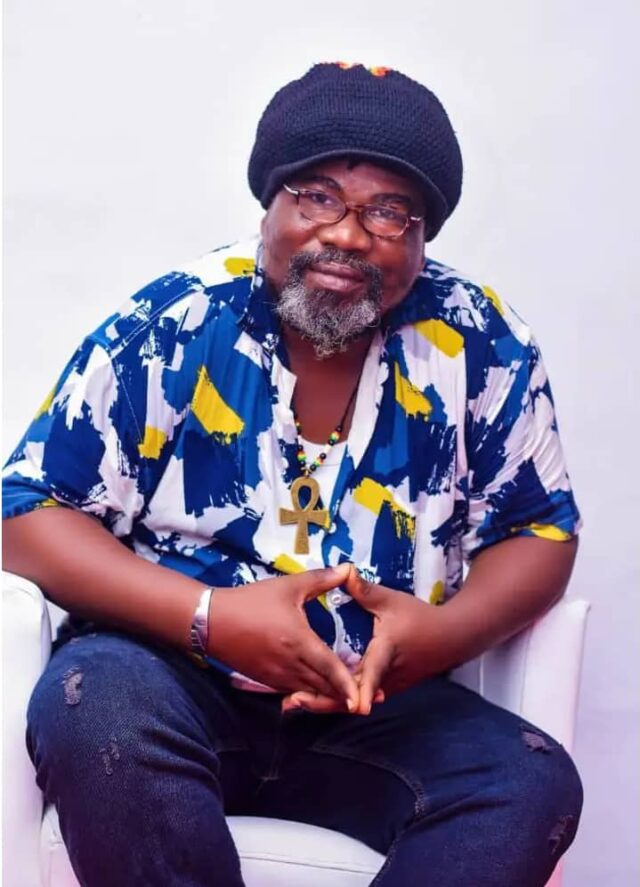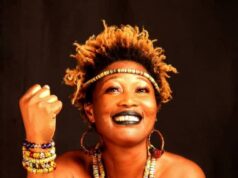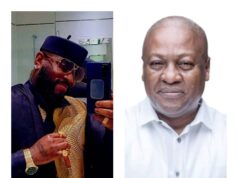……………………..
……………
……
WRITTEN BY: Regula Rebel
Call:+233 244 859 286
WhatsApp:https://wa.me/qr/T52KJ7XVOSAYE1
Facebook Page: https://www.facebook.com/profile.php?id=100093225429656&mibextid=ZbWKwL
Willy Wanta, originally christened William Mensah, is a Ghanaian reggae and dancehall artiste that was born and bred in Elmina, a historically popular Ghanaian town in the nation’s central regionthat takes a topical mention in the early stage records of the Trans-Atlantic slave trade.
Growing up in a party-loving coastal town like Elmina where fishermen use folk music as an energy tool during fishing activities to make their work fun and not boring, it could be inferred that the young Willy Wanta constantly drew basic music inspiration from the ever-singing working fishermen and also from the loud traditional clubs that played all music genres to entertain the town.
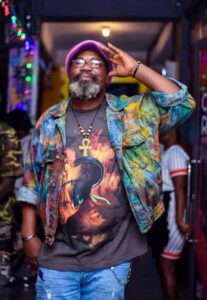 Beating his mother’s cooking utensils to create sounds over cover songs at his leisure during his childhood as a happy self-entertainment, the young Willy Wanta wasn’t aware that he had actually started building a music journey that would graduate to a professional level in the future. He finally attained awareness of his innate craft when he was 17 years old. He then grew intense hunger for professional music and started writing and composing songs — but that was in the early 90’s when he had long moved to Teshie, a coastal town in Accra.
Beating his mother’s cooking utensils to create sounds over cover songs at his leisure during his childhood as a happy self-entertainment, the young Willy Wanta wasn’t aware that he had actually started building a music journey that would graduate to a professional level in the future. He finally attained awareness of his innate craft when he was 17 years old. He then grew intense hunger for professional music and started writing and composing songs — but that was in the early 90’s when he had long moved to Teshie, a coastal town in Accra.
Willy Wanta’s eager moves soared to a meaningfully promising height where he met professional musicians that were already doing serious music business. Soon he earned a collaboration request from Felix Owusu in 1992 and they jumped on an Ragga Hi-Life piece titled “Vida”. “Vida” enjoyed a good degree of radio traction on Ghana Broadcasting Corporation radio which then was transmitting nationwide, so it is safe to say “Vida” had a wide listen across Ghana.
In Willy Wanta’s books, collaborating on a Hi-Life project was a positive cross-genre experiment. He started off as a reggae artiste and he wouldn’t renounce that stance. Willy still does reggae.
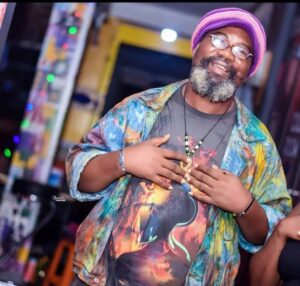 What Willy Wanta did on “Vida” is akin to 1992’s Jamaican Raggamufin flow pattern and that gave the collaboration a relatively unique vocal flair that set it apart from the other Ghanaian songs at that time. Around that same time “Vida” was making waves, Shabba Ranking, Buju Banton, Chaka Demus, Cutty Ranks, Mad Cobra had crossed over Jamaica with their hit releases and their music was heavily influencing Africa. Willy Wanta was then one of the newly emerged Ghanaian Raggamufin artistes, so he gave “Vida” that ragga feel which made it a hot local crossover collaboration. This was in 1992.
What Willy Wanta did on “Vida” is akin to 1992’s Jamaican Raggamufin flow pattern and that gave the collaboration a relatively unique vocal flair that set it apart from the other Ghanaian songs at that time. Around that same time “Vida” was making waves, Shabba Ranking, Buju Banton, Chaka Demus, Cutty Ranks, Mad Cobra had crossed over Jamaica with their hit releases and their music was heavily influencing Africa. Willy Wanta was then one of the newly emerged Ghanaian Raggamufin artistes, so he gave “Vida” that ragga feel which made it a hot local crossover collaboration. This was in 1992.
According to Willy Wanta, the production of “Vida” was sponsored by Daddy Lumba. Daddy Lumba got the track mixed and mastered in Norway.
Three years later, Willy Wanta and Felix Owusu would perform “Vida” at Miss Ghana 95′ inside Ghana’s National Theatre in Accra. They performed the joint in several venues in and outside Accra.
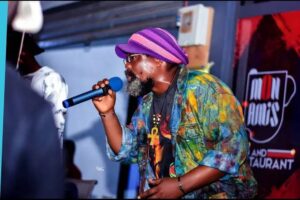 Right in 1995, after a series of public performances, Willy left the music scene but to return later, leaving a long tease that got his foundation fans missing him greatly for years
Right in 1995, after a series of public performances, Willy left the music scene but to return later, leaving a long tease that got his foundation fans missing him greatly for years
Willy Wanta left the music industry and enrolled in the Ghana army in 1995. He spent a decade break from music, making a focused comeback in 2016.
When he returned from a decade hiatus and resumed his career actively, he showed a practical proof that he hasn’t lost touch with the microphone. Since his 2015 resumption in music, Willy Wanta has been studio-busy and has been releasing a couple of singles every year.
In the early 90’s when Willy Wanta had started making serious music moves, he wasn’t only an artiste in the industry. On the flip side of his showbiz journey, Willy Wanta doubled as a radio dj. He worked on the Voice of Legon radio which is a radio station managed by the University ofhana. The Voice of Legon radio is now radio Universe. Before then, He had started off his radio dj work at Ghana Broadcasting Corporation’s Studio 4 where he was a dj to program host Eddy Amo on the Variety Entertainment show.
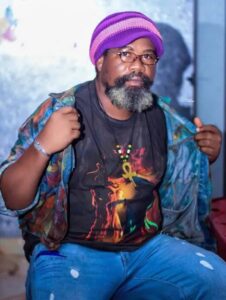 As an active prolific songwriter with a great ease at composition, Willy Wanta has been able to build a broad music repertoire. The current singles build-up sitting in Willy Wanta’s busy discography can be broken into a dozen or more standard albums and have a yearly album cycle over a decade without fail.
As an active prolific songwriter with a great ease at composition, Willy Wanta has been able to build a broad music repertoire. The current singles build-up sitting in Willy Wanta’s busy discography can be broken into a dozen or more standard albums and have a yearly album cycle over a decade without fail.
Having over 500 master singles, it is trusted that from 2024 onwards Willy Wanta will serve his fans with unwavering musical pleasure. On top of that, he will be staging his own-title concerts in Accra and in other parts of Ghana.
Notable Willy Wanta singles that were well-received are Jah Make We Survive, Me Alone, Homeess People, Jah Jah See, Love Me Love Me, Link Up, Otease,Me Tu Kye Ma Wo, She’s Mine, Don’t Confuse Them, and others.
Willy has international collaborations with Anthony John of Jamaican and Fidel Nadel of Mexico. Key homebase collaborations are ones with ward-winning Ras Kuuku, Osagyefo and Castro UnderFire.
In 2018, Willy Wanta released The “Most Wanted” EP, a 7-track project which he was laced with multiple themes: it has civil rights songs, a love song, songs for fun and thought-provoking songs too. “Most Wanted”is WillyWanta’s second body of work. Prior before that, he had released “Heavyweight Shankus” in 2016 which was produced by Wazumbi.
Having melodious flows and ear-pleasing deliveries, listening to Willy Wanta is always a soothing moment. His music gives a truly jolly ride and one easily gets hooked up on his good-feel vibes.
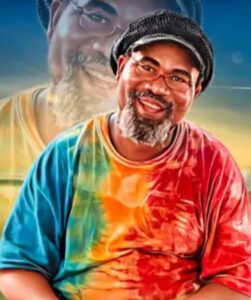 On indisputable merits, Willy Wanta effortlessly ranks high among the top few active pure reggae artistes in Ghana. He keeps rocking paramount stages with top ranking colleagues across nation.
On indisputable merits, Willy Wanta effortlessly ranks high among the top few active pure reggae artistes in Ghana. He keeps rocking paramount stages with top ranking colleagues across nation.

